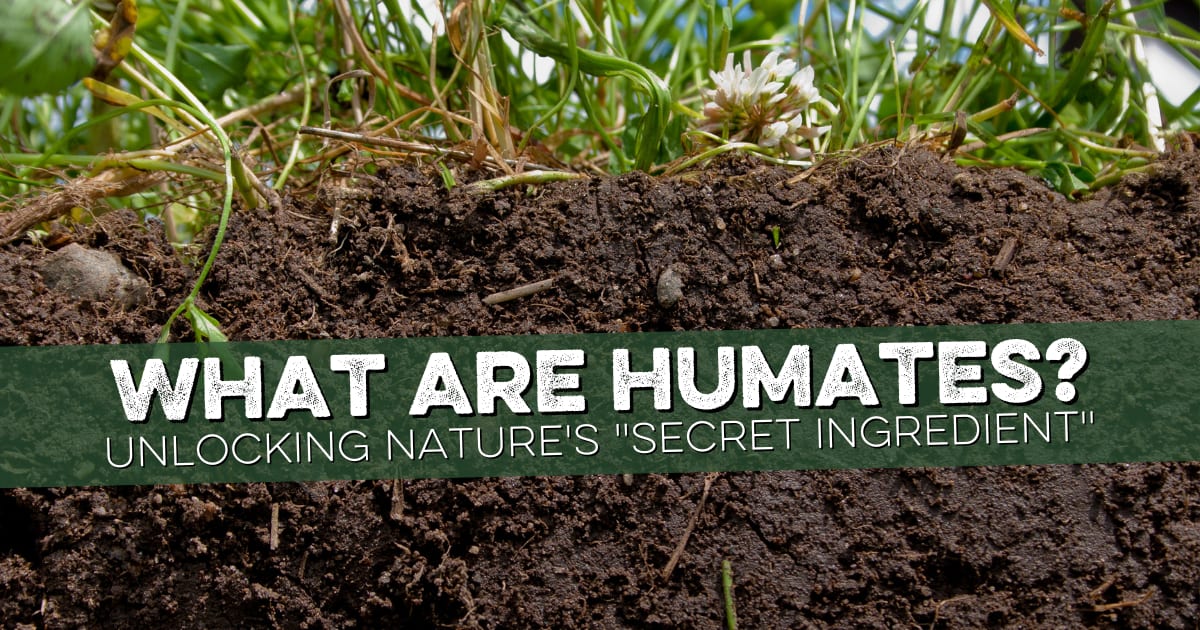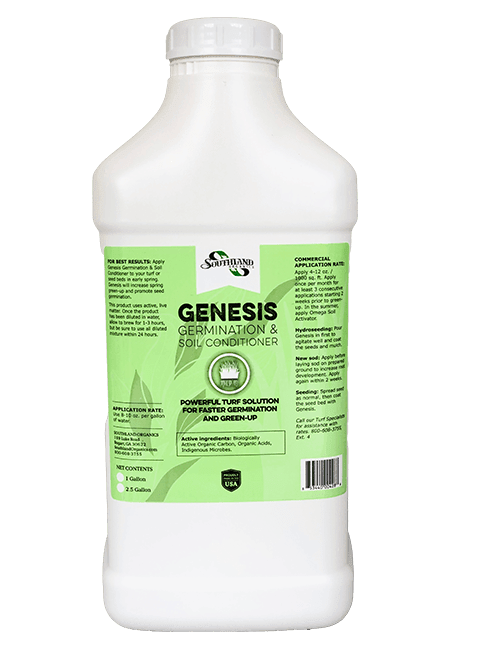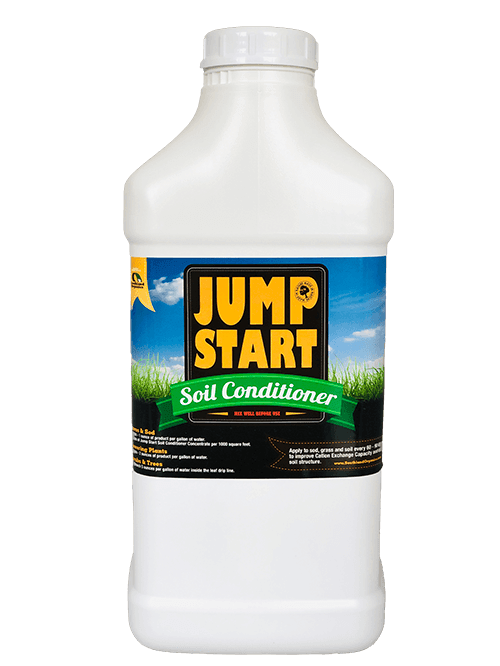
At the most basic level, humate is organic matter that makes up humus, the main organic fraction of soil. Humic substances are present in all soils and sediments that build up in the earth. Hence the name, humic substances contain humic acids, which have long been touted for their benefits to soil and plant health. Fulvic acid is a part of humic acid, and the terms are sometimes used synonymously.
General benefits of humic acids include:
-
Adding nutrient value to soils
-
Improving water holding capacity and nutrient retention
-
Stimulating root growth
-
Improving plant growth
-
Boosting seed germination
-
Costing less than other conventional soil products
Our Humate Deposit
Our products are made from a natural supply of humic acid material found in Coastal Georgia. The deposit is a unique natural blend of organic matter that was deposited in a bowl-shaped depression hundreds of thousands of years ago. Like all humates and humic acids, the resource comes from organic compounds that have been breaking down over eons, creating a carbon-rich vein of humic acid and fulvic acid.
Lying just below the surface, this deposit has never been compressed as other deposits have. This means that the humic material didn’t harden over the years. Like many of the earth’s mineral resources, humate is found in various qualities. Some very large deposits aren’t the best quality, while others are rich. Our humate deposit is particularly good because of its age—not too young, not too old—and biological makeup.
Definition of Humates
Humates are a complicated mixture of compounds, but for hundreds of years, people have recognized that plants grow better with humus. Native Americans used it, and early settlers from Europe followed their example.
“Humic substances, the major components of soil organic matter, are important to agricultural areas such as soil chemistry, biology, and fertility, as well as environmental quality. The multiple parts played by these materials can greatly benefit plant growth. Examples are their contributions in plant growth enhancement, increasing fertilizer efficiency, or reducing soil compaction.” USDA Report
In modern times, people harvest and use humic material for its ability to remediate pollution. Humates act as an organic surfactant to detoxify contamination. That’s why the resource in Coastal Georgia was first tapped.
Humic Acid Applications
Many poultry farmers across the country rely on Southland Organics humic acid products to provide natural solutions to natural problems. Keeping the chickens’ environment clean of ammonia is essential to the health of the birds, and our carbon-rich compounds do just that.
Those same compounds help to restore depleted soil fertility, replenishing nutrients and improving plant health, root growth and seed germination. Learn more about our humic acid lawn and garden products.
What’s in the humic acid deposit?

In our deposit, the humate material primarily consists of organic carbon with some nitrogen (1.76% nitrogen, according to tests), as well as small amounts of phosphorus and potassium. It also has small amounts of calcium, magnesium, iron, manganese, zinc, copper and sulfur needed for plant life. These elements are in an easily absorbable form for plants.
With a carbon makeup of 60% marine animal carbon and 40% vegetative carbon compounds, the deposit is more complex and superior to other mostly vegetative sources.
A rich supply of cypress lignin is also present. The lignin serves as a high-level food source for the good fungi in your soil. It strengthens plant cell walls and enhances soil nutrients.
Our Humate Products: The "Secret Ingredients"
Beneficial Microbes
The added beneficial microbes help decompose residual pesticides and herbicides and unlock bound nutrients in the soil. This makes nutrients available to plants in simpler, more easily absorbed forms. Microbes amplify conventional programs by making your inputs work harder for longer. Adding beneficial microbes to soil has been shown to improve soil structure and help break up clay soils.
Organic Acids
Organic acids and top-quality, organic carbon work to break surface tension of compacted soils and deliver oxygen to the root zone. Grass and plants grows deeper roots in oxygenated soil, helping them resist disease and overtake weeds.
Active Carbon
Carbon is the main building block of all organic life. In fact, 50% of plant life is made up of carbon. Carbon feeds microbes and is critical to microbial health. The microbes, in turn, assimilate nutrients and deliver them to the roots for growth and development. Carbon is the ultimate macro element that lawns and plants need to thrive.
How do we make our humic and fulvic acid products?

Our process for creating our humic acid products is simple and preserves the critical ingredients found in the raw material. We simply remove any brush and surface debris, and then take an 8-inch layer of material off the surface to ensure we get the most beneficial soil biology, yet leave enough to repopulate the next layer.
At the processing facility, we screen the raw product to remove roots or other debris to give us a dry humate. Since the process does not require heat or chemicals of any kind, our basic humate is kept in its natural state. This means that the chemical properties of our humic substances have not been altered in any way, and the living microbes are unharmed and ready to go to work restoring the soil.
To create the liquid products, we have a simplistic process for extracting the substrate. The strenuous process meets or exceeds standards for production in organic agriculture.
Our Products Based on Humic and Fulvic Acids
We manufacture products in the lawn, garden, poultry and waste categories that employ humic acid as the base for their effectiveness. In addition to humic and fulvic acids that have a positive effect on root development and cell division, these products include beneficial bacteria that outcompete harmful bacteria.
Our humate products include:
-
Genesis | Humate Soil Conditioner for Lawns
-
Jump Start | Liquid Soil Conditioner
-
Revival | Liquid Lawn Aerator
-
Big Ole Bird | Poultry Probiotics
-
Hen Helper | Probiotics and Electrolytes for Chickens
-
Ignition | Compost Starter and Garden Rejuvenator
-
FertALive | Liquid Humic Acid Fertilizer
-
Litter Life | Poultry Litter Amendment
-
Omega | Soil Activator for Lawns
-
PORT | Holding Tank Treatment
-
Ultimate Tea | Garden Plant Food
We are proud to manufacture and sell these eco-friendly products that serve as natural solutions to natural problems across several industry and residential applications. If you have any questions about our products or humic substances, feel free to email support@southlandorganics.com.
About the Author
This page was written by Mike Usry, the President of Southland Organics. Mike is an entrepreneur and soil enthusiast with a passion for educating on agriscience-based topics to help business owners and homeowners alike grow plants, turf, poultry and more. Mike received his Bachelor of Science in Education from the University of Georgia and his MBA from the University of South Florida. The combination of his education and experience has given him a deep understanding of both business and the science behind our products. Mike founded Southland Organics in 2009. Learn more about Mike here.
This page was edited by Izy Dobbins, Southland Organics' Marketing Manager. Izy has devoted her education and career to communicating science-related topics. With an enthusiasm for sharing accurate and honest content relating to science and agriculture, she ensures Southland Organics' publications are as informative as they are interesting. Izy graduated from the University of Georgia with a bachelor's degree in advertising, minors in both Spanish and environmental health science and a Certificate in Sustainability. She has been working at Southland Organics since 2021. Learn more about Izy here.
